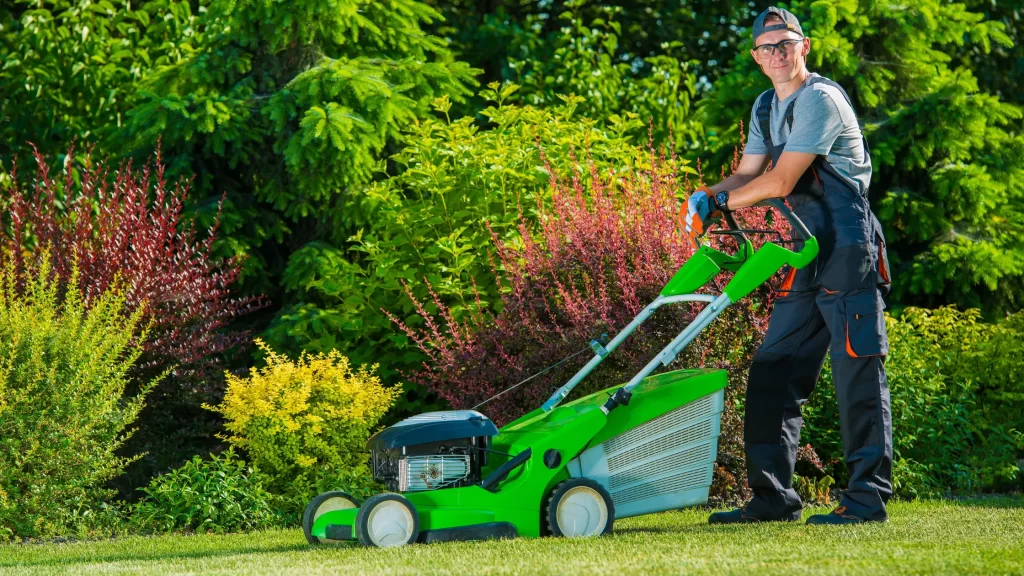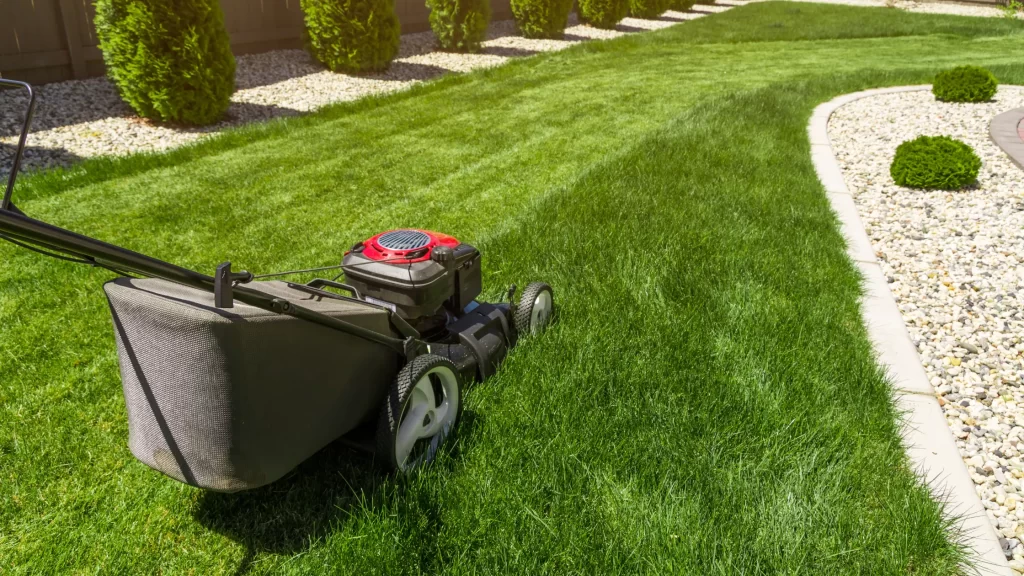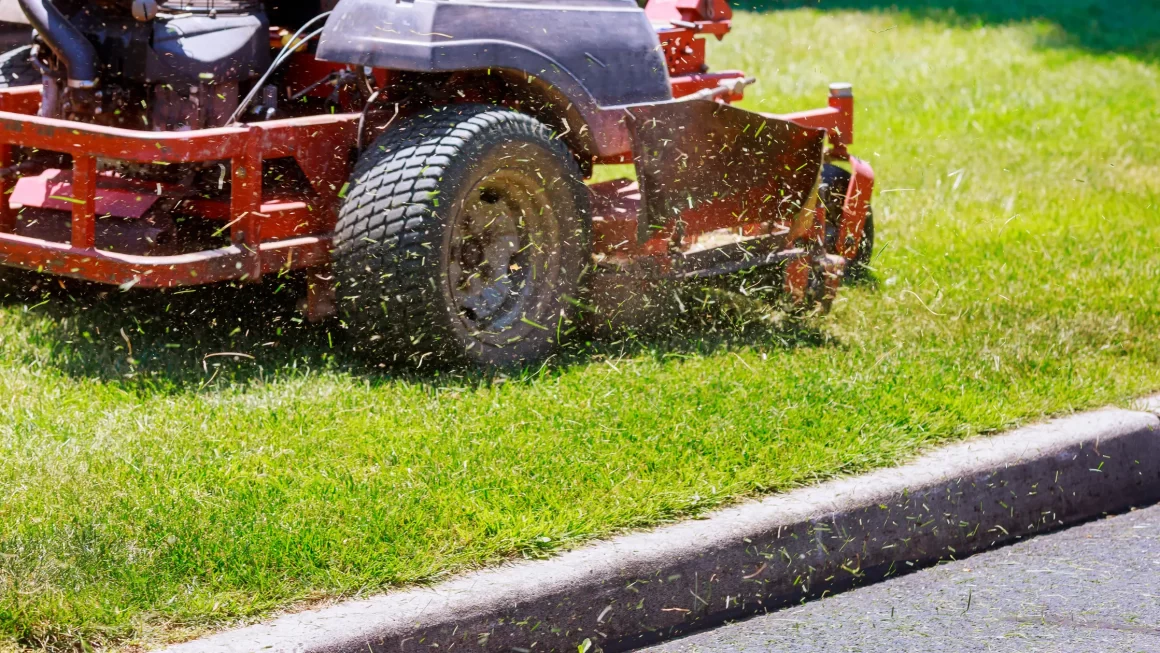Table of Contents
Starting a lawn care business requires more than knowing how to mow lawns. A lawn care truck is critical in determining how efficiently the company operates and whether it can scale to meet growing demand.
Whether you’re a solo landscaper or a business owner with a team, choosing the right truck for your lawn care is vital for your business. It must haul tools, mulch, and lawn care equipment. But, it must also be manoeuvrable to reach tight spaces and finish jobs quickly.
This article will explore factors in choosing a lawn care truck. We’ll discuss its impact on profits and whether to buy new or used.
Key Features of a Lawn Care Business Truck
Hauling Capacity for Tools, Mulch, and Equipment
A lawn care business truck needs to haul different tools. This includes mowers, mulch, and other landscaping materials. The truck’s payload capacity is vital. It must carry large items, like a riding mower, landscaping tools, a trailer, and snow removal equipment for winter.
A lawn care business owner dreads a truck that can’t handle the load, especially when transporting materials for a project. Some landscaping businesses may need to haul heavier items. These include mulch, soil, or even plough attachments.
The capacity and durability of the truck are essential for ensuring that every job can be completed without interruption. Some popular trucks are from Ford, Chevy, Dodge, Ram, and GMC. They have models designed for towing and hauling heavy loads.
Maneuverability for Tight Spaces and Landscaping Sites
Another key consideration is the manoeuvrability of your lawn care business truck. Many lawn care jobs require navigating tight spaces or narrow driveways where larger trucks may struggle. A smaller pickup or a new Dodge Ram could be ideal. They would be nimble enough to get around obstacles. They can also carry tools and small landscaping equipment.
A bigger truck may be needed for larger projects. But, it may be less accessible in smaller spaces. While selecting a car, it’s important to ensure it provides both hauling capacity and ease of movement. A pickup truck can be highly useful in most cases, but for extensive projects or large commercial clients, a tandem axle or duty truck may be required.
Also Read: Business Shopnaclo: Ultimate Guide to Boosting Apparel Success
Factors to Consider When Choosing a Truck for Your Lawn Care Business

Size and Weight Limitations
The size of your lawn care business truck will determine how much equipment it can carry and how easily it can access landscape spaces. Larger trucks may be able to take more, but they can be harder to manoeuvre in tight areas or during a simple lawn mowing job. Additionally, the weight of your lawn care equipment and mulch can impact your profit margins, depending on how much fuel is consumed.
A heavier truck may need more fuel, which eats into your profit margins, especially when gas prices fluctuate. Some landscaping businesses offer different services. They may just mow lawns or do more complex jobs like snow removal and landscaping that involve hauling large materials.
Understanding the work your business handles will help you decide on new or used trucks and whether you need to focus on payload or engine power.
Engine Power and Fuel Efficiency
Choosing between a Ford, Chevy, Ram, or GMC Sierra depends on how much power you need. Larger landscaping firms with big projects might consider GMC, Dodge, or Ford trucks with stronger engines. These trucks are often built for towing and hauling, making them suitable for carrying heavy lawn care equipment.
Engine power is vital for transporting large loads. But, we must not overlook fuel efficiency. A car that uses less gas to tow a lawn mower or lawn care equipment will allow your business owner to save more money in the long run.
Durability and Maintenance
Durability and long-term maintenance are significant factors in the truck-on-the-road
strategy. A well-maintained used truck could save you a lot. But consider the potential maintenance costs later.
Landscaping businesses can save on costs by using low-mileage or newer used trucks. Customizing them for specific needs, like adding racks or toolboxes, can help. Ram, Ford, and Chevy all have durable, low-maintenance models. They require proper care.
Also Read: Global Business Summit: Host for Future Growth Success 2025
Best Types of Trucks for Lawn Care Services

Pickup Trucks vs. Larger Utility Trucks
For most lawn care services, a pickup truck is more than enough. These trucks are versatile. They can handle lawn care equipment and materials, like mulch. They also offer good manoeuvrability for residential properties. You may need a larger utility truck if you plan to grow your lawn care business. It should carry more tools and materials for multiple jobs.
Ford and Chevy offer reliable pickups: the F150 and Silverado. They have enough space for a lawn care service and can manoeuvre to do the job.
Flatbed Trucks and Trailers for Lawn Care Businesses
A flatbed truck and a trailer may be necessary if you’re regularly hauling mulch or other large materials. A trailer offers the ability to carry larger loads without overloading your vehicle. The trailer can also help you transport other essential tools that must be kept secure during transport, like mowers or snow ploughs.
With the right trailer, you can expand your lawn care business. You can add services like snow removal in winter. This will let you earn money year-round.
How a Lawn Care Truck Impacts Your Business’s Profitability

Optimizing Efficiency with the Right Truck
Your lawn care truck is an investment in your landscaping business that will directly impact your profit margins. The right truck boosts efficiency. It cuts the time to load and unload tools, improving productivity. For a lawn business, time is money. An efficient truck that hauls everything you need lets you complete more daily jobs. This leads to higher profits.
The profit margins in the lawn care business often depend on the amount of work involved, the services you offer, and the type of equipment required. Having the right truck ensures you won’t miss out on jobs simply because your vehicle can’t handle the load.
Truck Maintenance and Operating Costs
Truck operating costs, like maintenance and fuel, affect profit margins. For landscaping businesses, a low-mileage used truck or a new, low-maintenance truck can save money over time.
Regular maintenance on the truck is necessary. It avoids unexpected breakdowns. These can cause lost time and a competitive edge in lawn care. When choosing a car for your lawn care business, weigh your costs. Balance the initial investment with long-term savings.
Also Read: International Shipment Release: What It Means for Your Shipment
Choosing the Right Lawn Care Business Truck
Choosing the right lawn care business truck is one of the most important decisions a business owner can make for their lawn care business. It impacts everything from profit margins to the ability to take on new clients. Choose a used or new truck. It must have the payload capacity to carry your materials and lawn equipment. It should also be easy to drive in tight spaces.
With careful planning, your lawn care truck can be a key asset. It will help you complete jobs more quickly and efficiently while decreasing costs.




